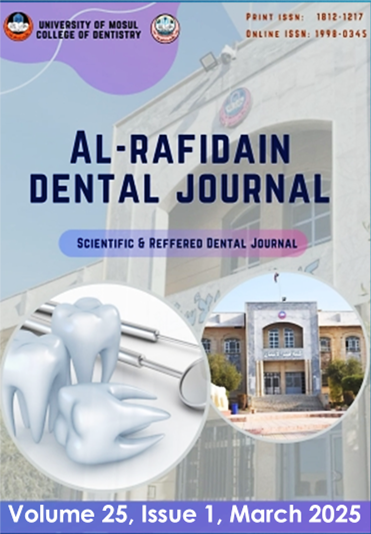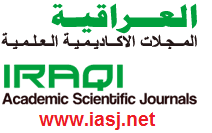Abstract
The current study aimed to diagnose and understand the role of various periapical granulomas and radicular cysts and their relationship to age and gender, as well as CD68 and TNF proteins. Materials and Methods: 26 patients were diagnosed with RCs, 14 cases with PGs, and 10 cases served as a control group, for a total of 40 cases. A sample size of 40 could provide preparatory information, and increasing the sample size greatly enhances the reliability and toughness of the studys findings. The necessary information on the patients' age, gender, and anatomical site of the infection was obtained. Results: 35% of cases had radicular cysts, and 65% had granulomas. This reflects the increased prevalence of granulomas among patients. The percentage of females in the cysts group was greater, at 71.4%, compared to 50% in the granulomas group. While the proportions of males and females in the granulomas group were close. The periapical lesions were more common between the ages of 13 and 20 years, with 42.3% of PGs and 35.7% of RCs occurring between these ages. CD68 protein expression was substantially higher in the PG group, with a mean score of 3.27, than in the RC group, with a mean score of 2.36. TNF was substantially higher in the PG group. Conclusion: The patients in the study have a higher prevalence of granulomas, and gender and age differences play a role in the kind of infection. TNF- plays distinct roles in the pathophysiology of PGs and RCs. In PGs, it sustains a strong inflammatory response leading to tissue damage, while RCs show less inflammatory response dominated by epithelial proliferation and cyst growth. These differences influence remedy. High CD68 expression in PGs indicates a robust immunological response mediated by macrophages, which may aid in tissue repair and remodeling. Lower expression of CD68 and TNF alpha in RCs may explain the cysts' delayed growth and encapsulation.












